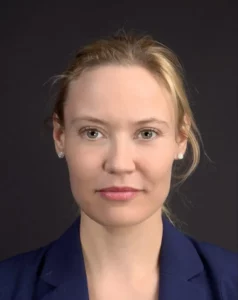14. Facts About Hair Loss


BiochemNordic
1. What Is The Best Treatment For Hair Loss?
Hair loss is a problem for many people both men, and women. Because of the cosmetic nature and impact on the individual’s self-esteem, there is a lot of different hair treatment programs, products, and procedures on the market, which are often very expensive but not effective.
According to Dr. Ray Peat hair loss is a hormonal imbalance, with high-stress hormones and impaired cellular energy production. The resolving of hair loss is linked to the resolving of the inflammatory processes and low thyroid function which is the main issue of hair loss. Thus hair loss is actually an indication of general health issues, it is just the visual sign. An effective hair loss treatment program should thus focus on correcting the imbalance of the body as a whole, instead of just focusing on the cosmetic side of the hair loss. Our approach to hair loss is to correct the underlying causes, and thus support the thyroid function and shift the body away from stress and inflammation to a higher energy state with a healthy hormonal balance. We use our thyroid promoting diet and lifestyle, which is outlined in the hypothyroid treatment program, as well as supplements that further correct the nutritional and hormonal issues of hair loss.
2. Does Balding Mean High Testosterone?
Excess testosterone is often said to be the cause of male patterned baldness and is also assumed to play a role in female hair loss, which is why many hair growth products for the scalp contain estrogenic substances as estrogen inhibits testosterone.
But, studies of a large number of people with hair loss have failed to show a connection between testosterone and hair loss, as testosterone levels were not elevated in men with no hair compared to men with lots of hair on their heads. This has given rise to the notion that people with hair loss have a special sensitivity to testosterone, underlining the lack of evidence for testosterone causing hair loss.
According to Dr. Ray Peat testosterone is not the cause of hair loss. Testosterone actually promotes faster growth of strong thick hair, whereas estrogen terminates the growth of the hair shaft, causing the hair to fall out.
3. What Causes Hair Loss?
The cause of hair loss is a hormonal imbalance, where stress and proinflammatory hormones are elevated and protective anti-stress and energy-producing hormones are low. This is what we described in our hypothyroid treatment program Module1, as the low energy state of the body. In the low energy state, the body loses structure and control and lets harmful degenerative processes occur, instead of healing and repair.
A person with hair loss will often have excess blood levels of prolactin, cortisol, estrogen, and parathyroid hormone, together with a low thyroid function, indicated by an elevated TSH level.
As the normal ranges for these hormones in the blood are very wide, the numbers might fall in the upper end of normal. According to Dr. Ray Peat, a TSH level above one can create problems, although the normal range goes as high as 5 in some countries.
4. Can Hypothyroidism Cause Hair Loss?
The thyroid gland controls metabolism and therefore the energy production in each cell of your body. Low thyroid function also called hypothyroidism, leads to many different symptoms as the tissues and organs are not functioning optimally. A common symptom of hypothyroidism is hair loss, thinning of the hair, and hair shedding. Low thyroid function also induces the overproduction of cortisol, prolactin, and the parathyroid hormone which all contribute to hair loss.
5. Does Cortisol Cause Hair Loss?
People with hair loss have excess levels of the stress hormones cortisol. Cortisol is an emergency stress hormone. In stress, almost all our hormonal precursors go into the productions of cortisol and there is less precursor for the production of the hormones that actually promote hair growth including progesterone, testosterone, and DHEA.
Cortisol is a catabolic hormone meaning that it breaks down the structures and tissues of the body leading to hair loss. Wheres progesterone, testosterone, and DHEA are anabolic hormones that promote growth and tissue rebuilding including hair growth.
Hypothyroid people compensate for their low cellular energy production by increasing their production of cortisol. A person with low thyroid function runs on cortisol instead of producing enough energy in their cells. Therefore good thyroid function is very important for preventing long term exposure to cortisol and hair loss.
Low blood sugar and a diet with too much protein compared to good carbohydrates are other common reasons for the overproduction of cortisol. Using a diet that keeps the blood sugar steady and balances protein with healthy carbohydrates is important for preventing the overproduction of cortisol and thereby preventing hair loss.
6. How Does Prolactin Terminate Hair Growth?
Prolactin is produced in females during lactation but is also produced in men and regulates almost all cells in the body. Overproduction of prolactin occurs in stress and estrogen excess. Longterm exposure to prolactin has many negative effects on the body including inflammatory diseases, heart diseases, and hair loss, with prolactin (like estrogen) directly terminating the growth of the hair shaft causing the hair to fall out.
Keeping the thyroid function up is very important for preventing the overproduction of the prolactin, as the kind of stress that occurs, when the cellular energy production is low induces the overproduction of prolactin. Vitamin A and calcium also inhibit excess prolactin production.
7. Can Hyperparathyroidism Cause Hair Loss?
The parathyroid hormone is secreted by the parathyroid gland, which controls the body’s blood calcium level. When the diet is not rich in calcium, the parathyroid hormone is increased signaling the bones to release calcium to the blood. Stress, including low thyroid function, also induces an increase of parathyroid hormone. An elevated parathyroid hormone promotes inflammatory processes and hair loss. Bringer the parathyroid hormone down has been shown to improve hair growth. Vitamin D, calcium, vitamin A and good thyroid function are all important for keeping the parathyroid hormone down in a safe range where hair growth is promoted.
8. How To Cure Hair Loss?
As described people with hair loss have a tendency towards low thyroid function with excess levels of stress and inflammatory hormones including cortisol, prolactin, estrogen, and parathyroid hormone, which all induce hair loss and shedding.
Our approach to hair loss is to look at the body as a whole and not just as a cosmetic issue. Hair loss is a sign that your body’ is experiencing low energy and an inflammatory state, which also makes you more prone to other diseases including heart disease.
The key to solving hair loss permanently is to shift the body back into the high cellular energy state with good thyroid function and enough of the protective youth associated hormones pregnenolone, progesterone, DHEA, that all promote hair growth.
9. Can Diet Promote Hair Growth?
The right diet is often the key to solving hair loss. Many people with hair loss have been eating a diet that directly suppressed their thyroid function. A lot of so-called healthy foods actually strongly suppress the metabolic rate examples are: raw vegetables from the cabbage family, nuts, fatty fish, and polyunsaturated oil just to name just a few. Some common nutritional supplements can also be thyroid suppressive and inflammation-promoting. You can learn much more about the foods and compounds that suppress your thyroid function in our hypothyroid treatment program Module 2. Our hypothyroid treatment program describes in detail our diet and health recommendations that support thyroid function and a healthy hormonal balance. The key idea of our diet and health recommendations is to base the diet on foods that support metabolism and avoid foods that directly suppress cellular energy production.
10. What Is The Best Supplements For Hair Growth?
In some cases, a diet change is not enough to repair the bod, and using a thyroid supporting supplement can be very useful in supporting good thyroid function and promoting hair growth. Our thyroid supplement guide helps you choose useful over the counter (no prescription) thyroid replacement supplements.
11. Best Hormonal Hair Loss Treatment?
Our hormonal support guide helps you choose helpful and reliable progesterone and pregnenolone supplements. Both of these hormones have strong anti-stress properties and helps your body shift away from the stress and pro-inflammatory hormones, that cause hair loss.
12. Do Vitamins Help Hair Growth?
Sometimes it is useful to use selected nutritional supplements and superfoods in order to cure your hair loss. The vitamins that are important for healthy hair growth are all the B-vitamins (vitamin B-complex) vitamin A, Vitamin D, Vitamin K, and Calcium. These vitamins are important for preventing the formation of the pro-inflammatory hormones, cortisol, prolactin, parathyroid hormone that are involved in hair loss. In our nutritional supplements guide, you find our selected vitamin and mineral products with dosage recommendations.
13. What Foods Can Help Reverse Hair Loss?
Low blood sugar induces overproduction of cortisol, and high cortisol is as described involved in hair loss. Fructose helps build the glycogen stores in the liver, and thereby it stabilizes the blood sugar. Fructose is found in fruits, but for people with low blood sugar issues, pure fructose powder is a useful supplement for preventing the stress an excess cortisol production associated with a drop in blood sugar. You can learn more about the use of fructose powder in our hypothyroid treatment program Module 5.
Another good superfood for hair loss is hydrolyzed gelatin, besides its anti-inflammatory properties, gelatin also has the correct amino-acids composition for forming new hair. Because gelatin is a pure protein it is important to eat it together with good carbohydrates in order not to disturb the blood sugar.
You can learn more about how to combine foods in our hypothyroid treatment program Module 7. Our product and dosage recommendations for hydrolyzed gelatine and pure fructose is found in our nutritional supplements guide.
14. Diet And Supplement Counseling For Hair Growth
I do online counseling sessions via Skype, phone, or What’s app with people from all over the world. If you would like to work with me personally, you can book a counseling session and I will get back to you with a time for the session.


